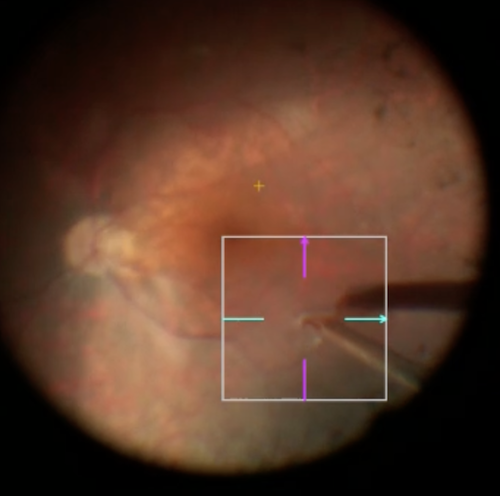Texas Retina Associates and the Retina Foundation of the Southwest (RFSW) have been working in collaboration on new gene therapy treatments for inherited blinding diseases for which there are no cures. Most recently, this work has included a Phase II clinical trial called SKYLINE which is evaluating the safety and efficacy of a study drug called AGTC-501 for patients with X-linked retinitis pigmentosa (XLRP). Texas Retina Associates’ Rajiv Anand, MD, serves as a co-investigator for the SKYLINE study, performing the surgeries to implant the study drug. So far, Dr. Anand has treated two patients, and both are doing well and making progress.
XLRP is a rare, inherited degenerative eye condition that causes gradual vision loss in boys and young men. It changes how the retina responds to light and often begins with night blindness and a progressive loss of peripheral vision. This disease eventually leads to central vision loss and results in a person becoming legally blind in their 40s.
Gene therapy is the process of replacing a disease-causing gene, which is damaged or mutated, with a healthy gene. It allows a genetic defect to be corrected, either partially or wholly, avoiding further loss of function and improvement in some conditions. To date, the US Food and Drug Administration (FDA) has approved gene treatment of the eye for just one, very rare blinding condition called Leber’s congenital amaurosis. With that success and improvements in genetic testing technology, other eye conditions like XLRP are now being studied and considered for similar treatment.
Over the past several years, the RFSW’s David Birch, PhD, has been leading research on these inherited eye conditions, and Texas Retina Associates physicians have been working closely with him to help identify and treat these patients. Diagnosing genetic conditions when a patient is young and in the early stage of the disease is critical to allow for potential intervention to stop the vision loss.
Currently, there are several gene therapy clinical trials underway at select eye centers around the country. Texas Retina Associates is fortunate to be a part of this emerging research and to have the necessary technology and access to the research expertise of Dr. Birch and the RFSW, which has been named a Center of Excellence for Gene Therapy. The SKYLINE study is attracting patients from across the country, and Texas Retina Associates looks forward to continuing to work in partnership with the RFSW to test promising new gene therapy treatments for patients who suffer from these inherited diseases.


